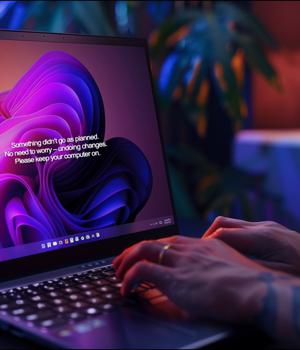Security News > 2024 > February > Windows February 2024 updates fail to install with 0x800F0922 errors

Microsoft says the February 2024 updates fail to install on Windows 11 22H2 and 23H2 systems, with 0x800F0922 errors and downloads stopping at 96%. Users experiencing this known issue will likely see a new Windows Event Viewer entry with a 0x800F0922 error code.
The following message will be displayed on affected systems after the security updates fail to install: "Something didn't go as planned. No need to worry - undoing changes. Please keep your computer on."
"Windows 11 devices attempting to install the February 2024 security update, released February 13, 2024 might face installation failures and the system might stop responding at 96%," Microsoft said in a new entry added to the Windows release health dashboard.
After deleting this folder, you might need to restart the affected system for the February 2024 security updates to install correctly.
WinRE was also behind the January 2024 Windows 10 KB5034441 update to fail with 0x80070643 errors with "There were some problems installing updates, but we'll try again later." messages.
Microsoft now force installing Windows 11 23H2 on eligible PCs. Windows 11 KB5034204 update fixes Bluetooth audio issues, 24 bugs.
News URL
Related news
- Windows 11 update breaks Veeam recovery, causes connection errors (source)
- Microsoft: Recent Windows updates cause Remote Desktop issues (source)
- Microsoft fixes printing issues caused by January Windows updates (source)
- Update VMware Tools for Windows Now: High-Severity Flaw Lets Hackers Bypass Authentication (source)
- Recent Windows Server 2025 updates cause Remote Desktop freezes (source)
- Windows 11 KB5053656 update released with 38 changes and fixes (source)
- Microsoft fixes Remote Desktop issues caused by Windows updates (source)
- Windows 11 KB5055523 & KB5055528 cumulative updates released (source)
- Windows 10 KB5055518 update fixes random text when printing (source)
- Microsoft: April 2025 updates break Windows Hello on some PCs (source)